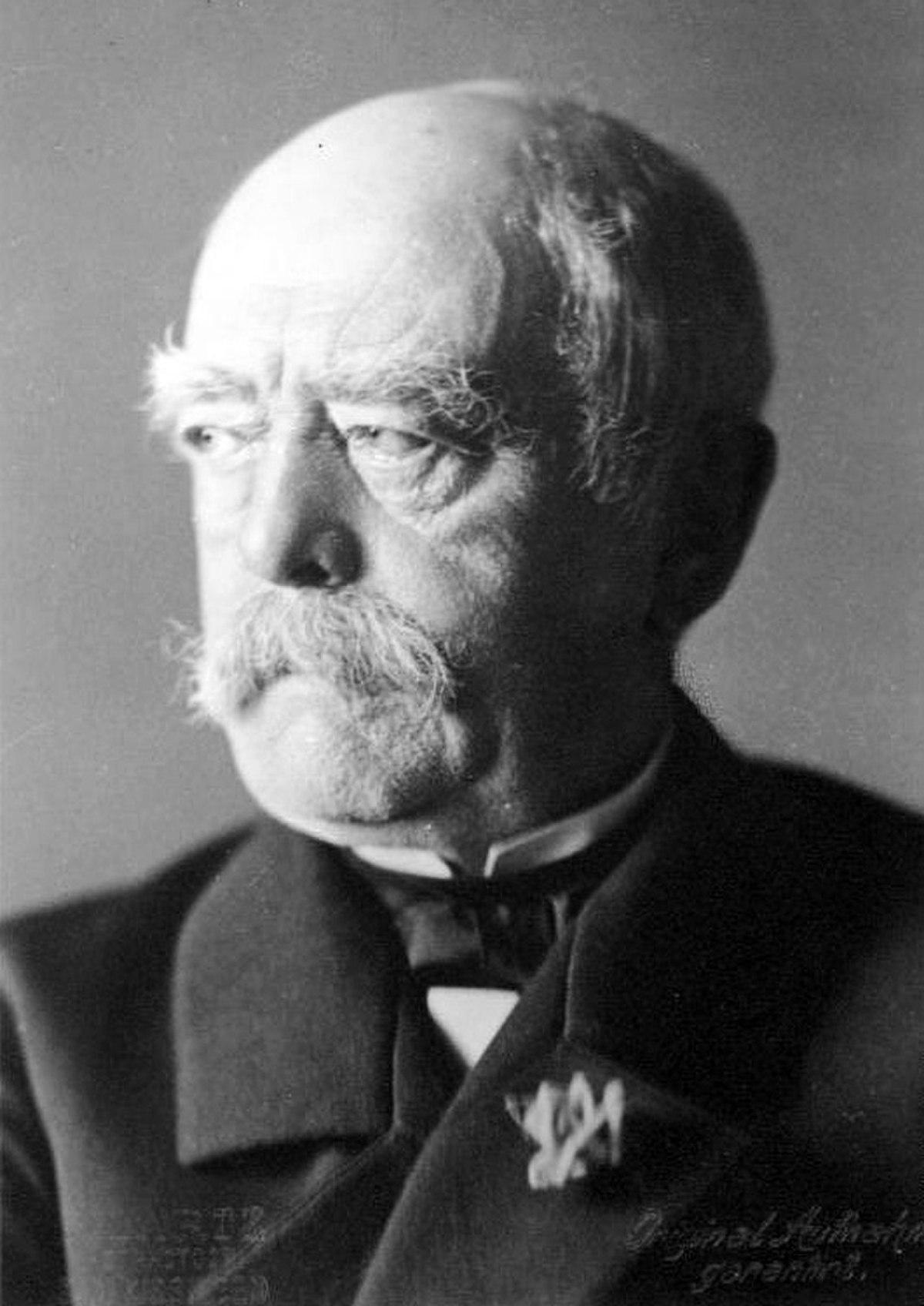
Iron Chancellor
GermanyBismarck was the dominant personality not just in Germany but in all of Europe and indeed the entire diplomatic world 1870–1890. Chancellor Otto von Bismarck determined the political course of the German Empire until 1890. He fostered alliances in Europe to contain France on the one hand and aspired to consolidate Germany's influence in Europe on the other. His principal domestic policies focused on the suppression of socialism and the reduction of the strong influence of the Roman Catholic Church on its adherents. He issued a series of anti-socialist laws in accord with a set of social laws, that included universal health care, pension plans and other social security programs. His Kulturkampf policies were vehemently resisted by Catholics, who organized political opposition in the Center Party. German industrial and economic power had grown to match Britain by 1900.
With Prussian dominance accomplished by 1871, Bismarck skillfully used balance of power diplomacy to maintain Germany's position in a peaceful Europe. To historian Eric Hobsbawm, Bismarck "remained undisputed world champion at the game of multilateral diplomatic chess for almost twenty years after 1871, devoted himself exclusively, and successfully, to maintaining peace between the powers". However, the annexation of Alsace–Lorraine gave new fuel to French revanchism and Germanophobia. Bismarck's diplomacy of Realpolitik and powerful rule at home gained him the nickname the Iron Chancellor. German unification and rapid economic growth were foundational to his foreign policy. He disliked colonialism but reluctantly built an overseas empire when it was demanded by both elite and mass opinion. Juggling a very complex interlocking series of conferences, negotiations and alliances, he used his diplomatic skills to maintain Germany's position.
Bismarck became a hero to German nationalists, who built many monuments honouring him. Many historians praise him as a visionary who was instrumental in uniting Germany and, once that had been accomplished, kept the peace in Europe through adroit diplomacy.
